My project - clock based on crystal (without microprocessor)
Clock based on 32,768kHz crystal oscillator
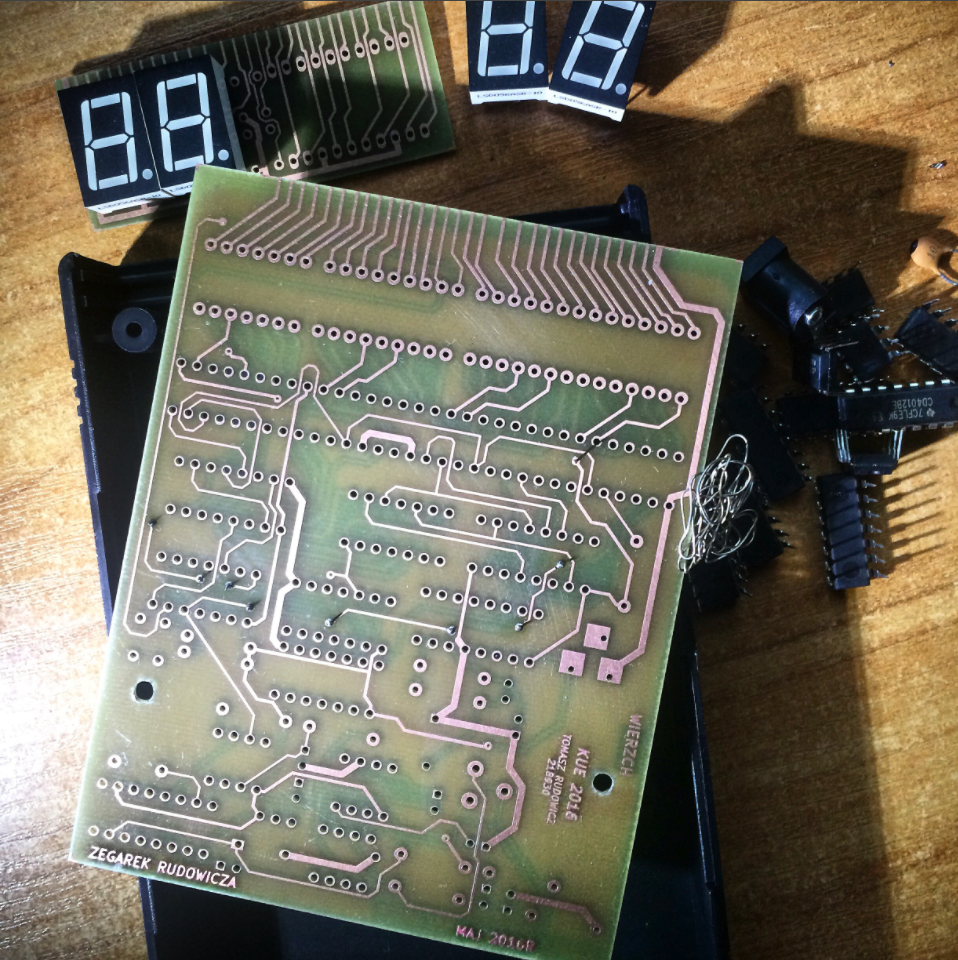
Two years ago on my studies at Wrocław University of Science and Technology i had classes from Electronics Devices Construction. We had a semester to build own project, and I wanted to build a clock, which can lie on the shelf. I've made an clock based on crystal oscillator, LED display, sound (1kHz sine) hourly with ability to change duration of sound, 24-hours display format, reset button and 9V power supply. Everything I built with the CMOS technology.
So, now I want to show you what I did as a project. Of course if you want to build something using my schema's or designs that's totally fine with me. Here you go:
1. Design brief
This project should reach expectations:2. Choice of electronical solutions
Possible solutions:In this project I used crystal 32,768kHz oscillator because of high accuracy generating frequency. The LCD display was rejected because of low quality of visibility from farther distance. The lamp display could increase size of device, so I decided to use LED display with 14.2mm height. I tested experimentally visibility of digits from 3 meters and it was good. The TTL technology was rejected because of high power consumption. I have chosen CMOS technology because elements are cheap and have big integration scale. This clock have a task to stay for a long time on shelf, so power supply(not battery) is optimal.
3. Flow chart

4. Calculations and how it works
I don't know how to do math symbols in the Steemit editor, so excuse me, I'll put here screenshots. I know it's not really nice, but I don't have any option - if you know how to make equations please let me know in the comments!Generator of acoustic signal based on opamp with Wien:

Generator of impulse with appointed time based on univibrator LM555:
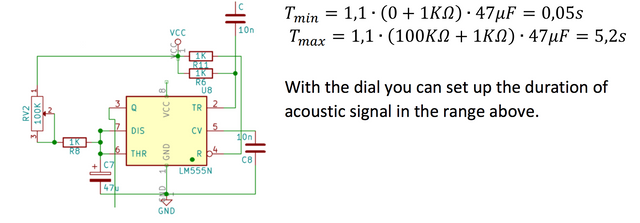
5. Schematics
Electric schema: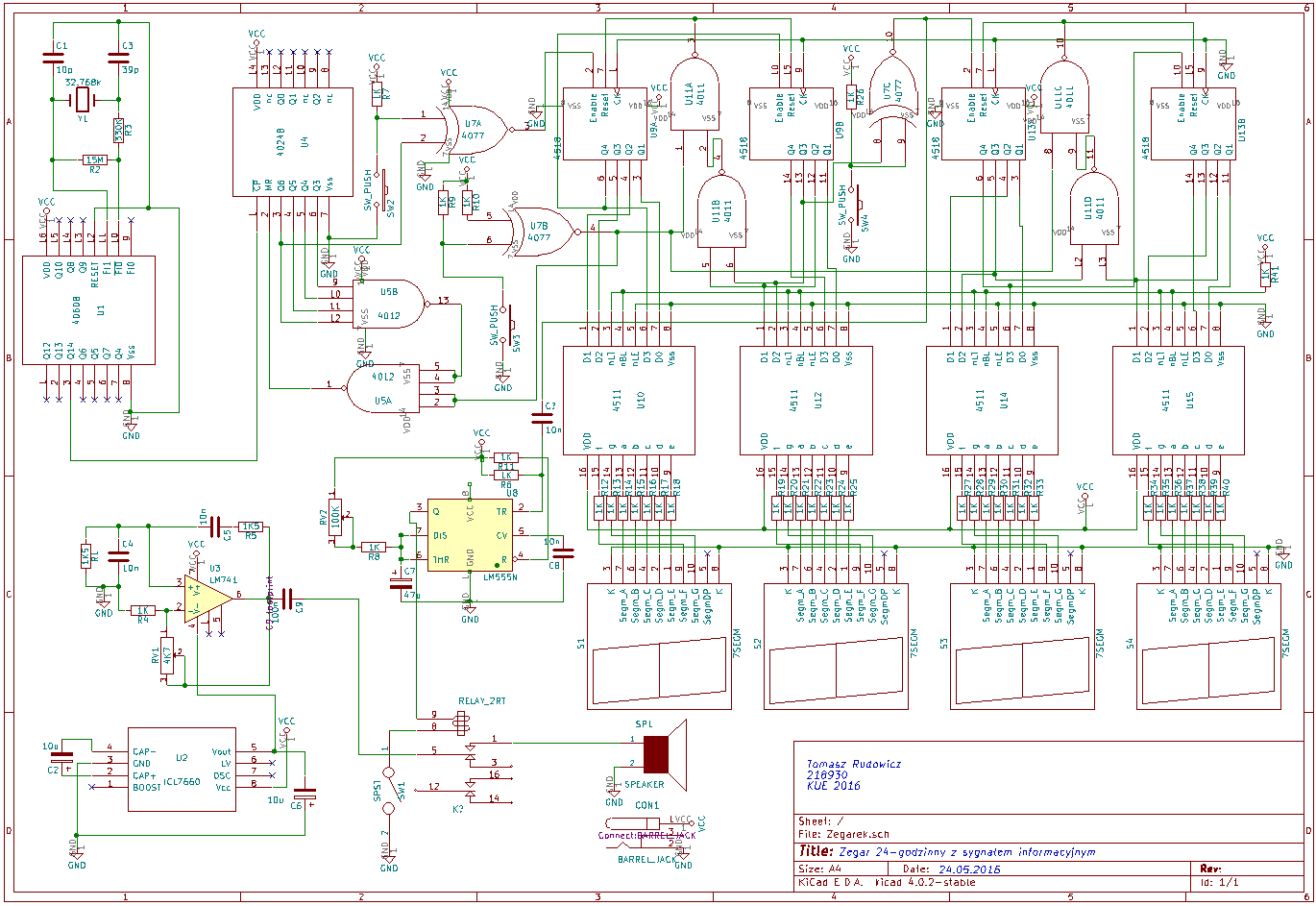
PCB design for external factory (top layer):
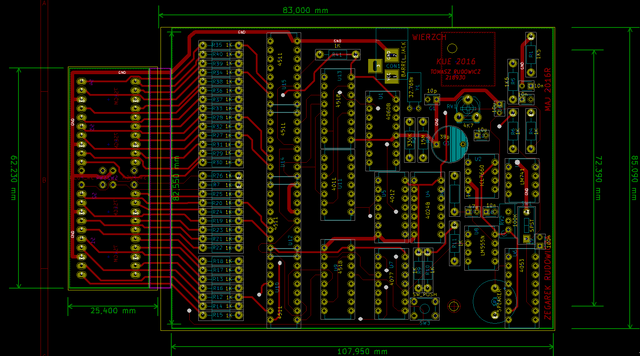
PCB design for external factory (bottom layer):
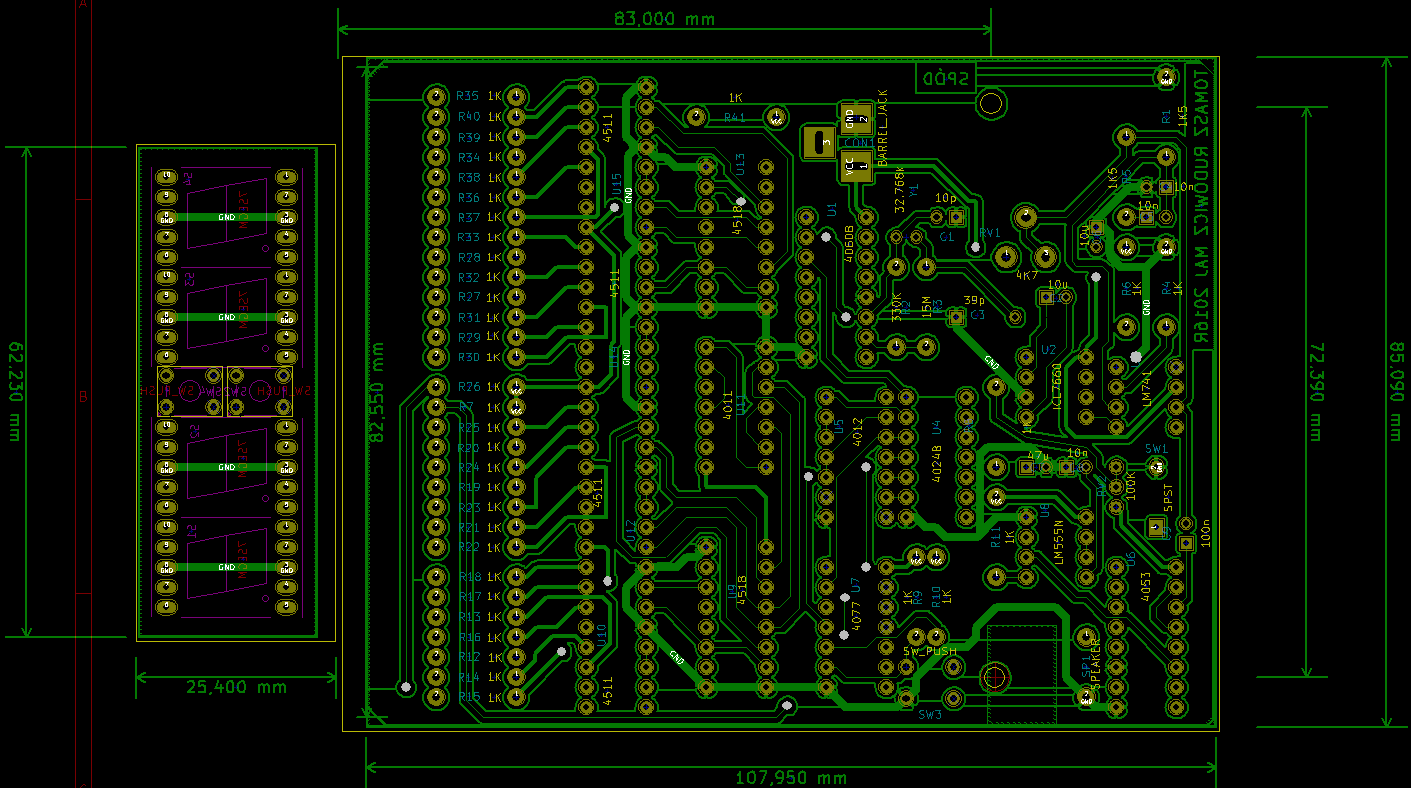
6. Short video representing working device
7. Some pictures made during contruction process
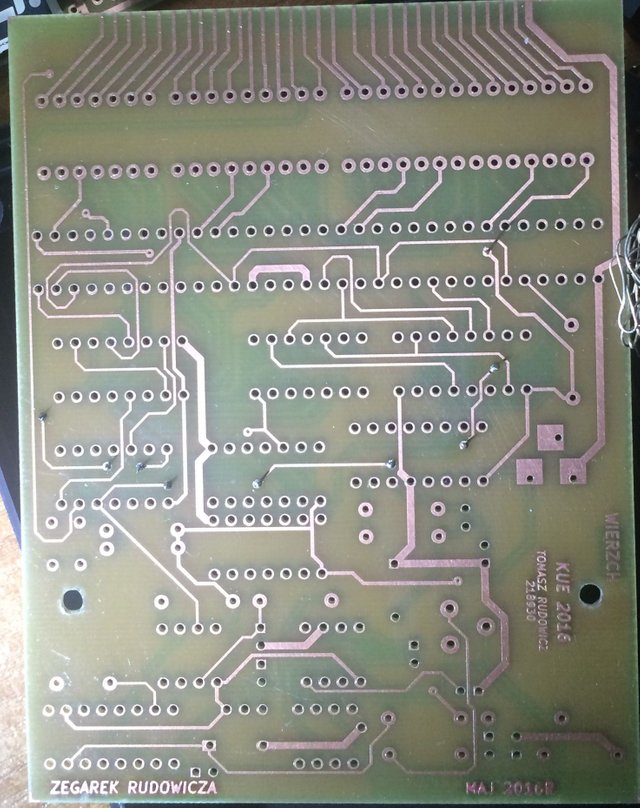



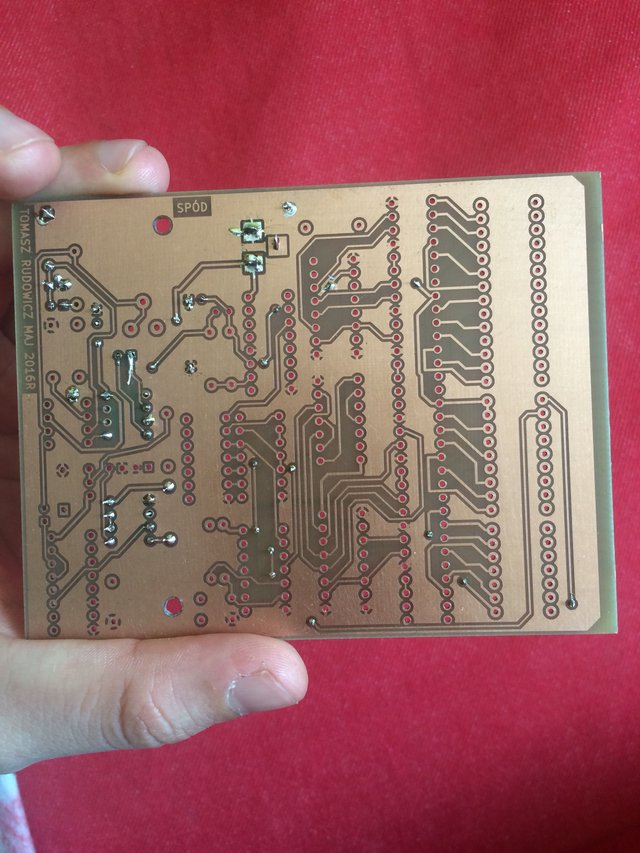
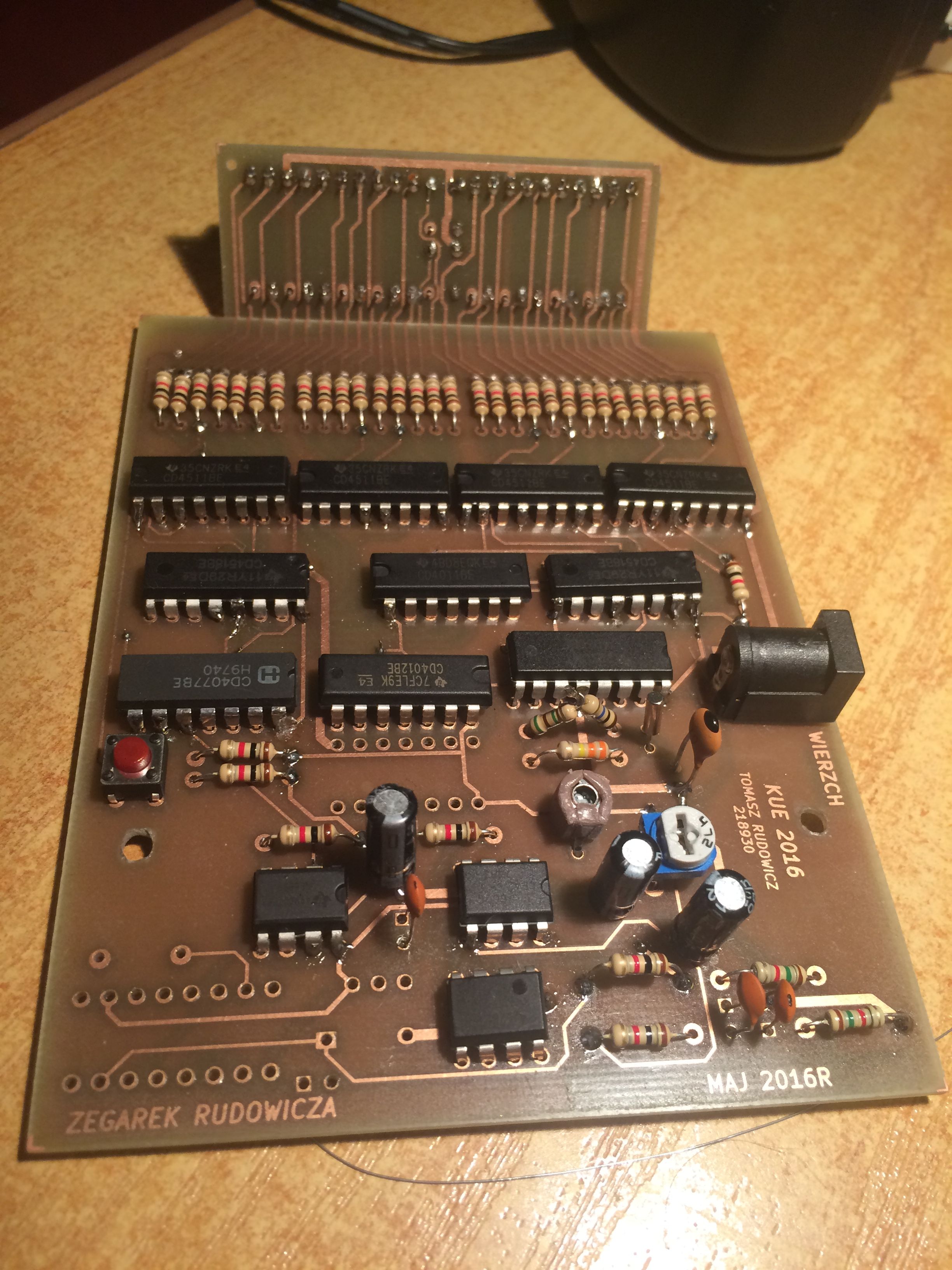
8. Conclusions and observations
This clock reached expectations of design brief and it’s extended of new function – ability to set up duration of hourly sound with possibility of turning off, what is really practical in the evening/night time. As the power supply I used from the recycling old mobile charger. The speaker is from the recycling too – I disassembled speaker from old broken headphones. The rest of elements I bought in the electronic store, the PCB made external factory with my PCB design. All expected costs was 70zł(~ 15 USD) and it was subtly exceeded. The two-ply PCB because of time of realization was made without metalizations of cleats and holes what made a problem for me with soldering elements(some of them had to be soldered from both sides). When I was designing PCB I located cleats under the integrated circuits, and because of no-metalizations cleats I had to insert there a connector what created problems for me when I was installing elements, because some integrated circuits was “leaning” on the connectors, so in the future if I’ll have no-metalized cleats I will be avoiding cleats under integrated circuits. In the first version of project the function of solid-state relay was to serve 4053 chip – analog multiplekser/demultiplekser. When I switched on my device it turned out that this 4053 is not working properly, so I decided to use classic solidstate relay. The next element which required improvement was ability to set up duration of sound. Control of LM555 element required differentiator.
It's been two years after the project, and I've got the clock still on my desk, but it's not perfect. The clock is hurrying almost 10 minutes per week - it's a lot. I could buy more oscillators and just try them - the cost is very low, so I suppose that they are not really precision and some of them could be better than the others. Other way is to buy a cheap system of atomic clock which I could set that every midnight would be resetting my device. In my clock every reset is making an 00:00 time, so if I'll make that exactly at midnight everyday that would be okey.
All informations from here you can find in the PDF, and you can find more photos and info here. Thank you for your time and please let me know if you like this!
Very cool! Thanks for posting in English :)
I saw your comment under my polish post, so I decided to do that in both languages :) Your profile seems to be similiar to my, so I'm going to follow you :) Have a nice day!
Thanks! I really appreciate you going the extra mile to publish it in english as well. I could understand the schematics and the process of what you were doing, but now I can understand everything much better.
I hope you have a great day as well!